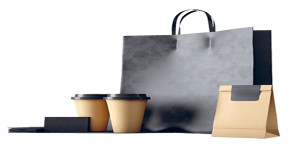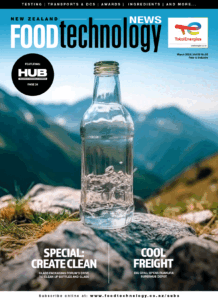
New Zealand food and beverage manufacturers and associated industries are being urged to participate in this year’s global survey of online buying behaviours of packaging professionals being run by the Australian Institute of Packaging.
FOR PACKAGING SUPPLIERS AND PURCHASERS
New Zealand food and beverage manufacturers and associated industries are being urged to participate in this year’s global survey of online buying behaviours of packaging professionals being run by the Australian Institute of Packaging.
The online survey, which will help benchmark online purchasing activities against competitors, is aimed at reducing online ‘noise’ generated by packaging solutions providers so they can better and more efficiently serve customers.
The Institute’s 2015 survey, investigating 153 qualified business-to-business buyers of packaging solutions from more than 20 countries, found that information overload was the major issue facing buyers of packaging, executive officer Nerida Kelton says.
“Even when buying teams use social channels and their own personal online networks to gather information, often they are overwhelmed by the magnitude of the conversations and opinions available on a particular issue, topic, product or service,” she says.
“This research effort attempts to get a grasp of the buying team’s purchasing dilemmas when starting and continuing a significant purchasing decision online. Sharing such findings with vendors should enable them to better service the packaging buyer’s needs, desires and buying journey, resulting in time and effort savings by both parties.”
Kelton says complex industrial buying practices have undergone significant changes in the past 20 years with the proliferation of internet usage within businesses. The days of using salespeople to engage prospective customers via telephone, meetings and live events such as trade shows are still valid but limited, with modern B2B buyers now frequently delaying their first human interactions until they complete around 60% of the purchase process.
Suppliers have also changed their marketing and sales strategies and tactics, and now often use surveys as a way of reaching their customers. “The value of the study for vendors lies in highlighting how they can better manage and justify their online content production and distribution efforts and resources,” Kelton says. “This is especially important for vendors with limited resources as the number of online channels continues to grow each year.”
Last year’s survey found:
Purchasing behaviour research efforts often ignore or marginalise inputs from actual purchasing teams;
Nearly 80% of buyers did not use Facebook, and more than 80% did not use Twitter to facilitate the buying process;
Many buyers said it took too much effort to locate information online, especially industry analyst reports, industry competitive information and technology primers;
A third of buyers rated reputation vendor pricing information as sub-standard, with reputation defined as confidence, trustworthy and credible. A third also found the intent of information posted online is not transparent and supportive;
Of smaller companies employing less than 100 people, half of buyers said their first choice for sharing information they collect online is verbally, followed by email;


































































































